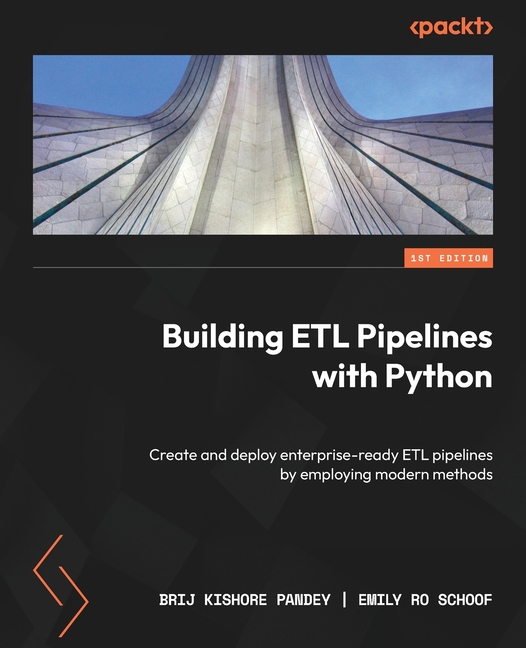Description
Develop production-ready ETL pipelines by leveraging Python libraries and deploying them for suitable use cases
Key Features:
- Understand how to set up a Python virtual environment with PyCharm
- Learn functional and object-oriented approaches to create ETL pipelines
- Create robust CI/CD processes for ETL pipelines
- Purchase of the print or Kindle book includes a free PDF eBook
Book Description:
Modern extract, transform, and load (ETL) pipelines for data engineering have favored the Python language for its broad range of uses and a large assortment of tools, applications, and open source components. With its simplicity and extensive library support, Python has emerged as the undisputed choice for data processing.
In this book, you'll walk through the end-to-end process of ETL data pipeline development, starting with an introduction to the fundamentals of data pipelines and establishing a Python development environment to create pipelines. Once you've explored the ETL pipeline design principles and ET development process, you'll be equipped to design custom ETL pipelines. Next, you'll get to grips with the steps in the ETL process, which involves extracting valuable data; performing transformations, through cleaning, manipulation, and ensuring data integrity; and ultimately loading the processed data into storage systems. You'll also review several ETL modules in Python, comparing their pros and cons when building data pipelines and leveraging cloud tools, such as AWS, to create scalable data pipelines. Lastly, you'll learn about the concept of test-driven development for ETL pipelines to ensure safe deployments.
By the end of this book, you'll have worked on several hands-on examples to create high-performance ETL pipelines to develop robust, scalable, and resilient environments using Python.
What You Will Learn:
- Explore the available libraries and tools to create ETL pipelines using Python
- Write clean and resilient ETL code in Python that can be extended and easily scaled
- Understand the best practices and design principles for creating ETL pipelines
- Orchestrate the ETL process and scale the ETL pipeline effectively
- Discover tools and services available in AWS for ETL pipelines
- Understand different testing strategies and implement them with the ETL process
Who this book is for:
If you are a data engineer or software professional looking to create enterprise-level ETL pipelines using Python, this book is for you. Fundamental knowledge of Python is a prerequisite.
Product Details
- Sep 29, 2023 Pub Date:
- 1804615250 ISBN-10:
- 9781804615256 ISBN-13:
- English Language




